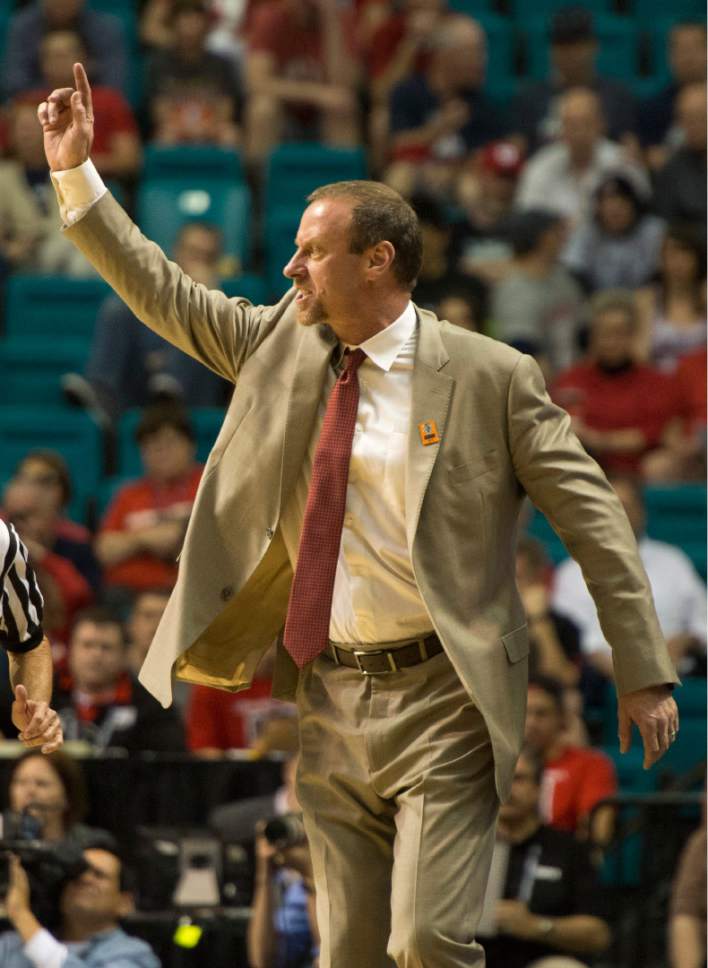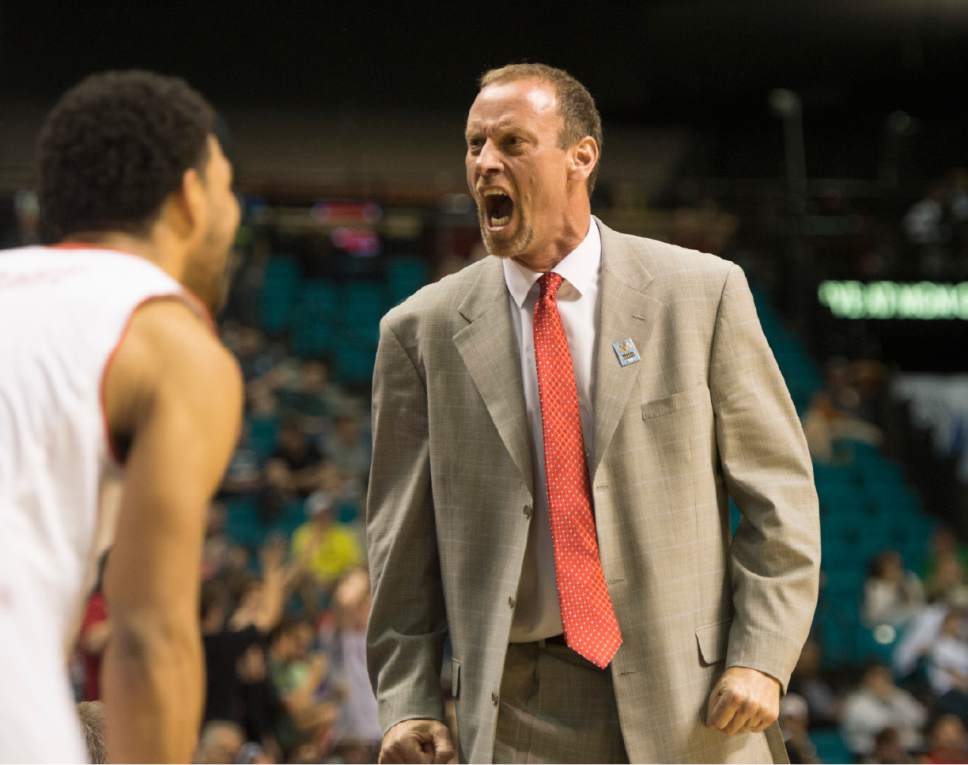This is an archived article that was published on sltrib.com in 2015, and information in the article may be outdated. It is provided only for personal research purposes and may not be reprinted.
Sandy
Larry Krystkowiak is as familiar as anyone with the mystique of No. 12 seeds in the NCAA Tournament.
After all, Krystkowiak's staging such an upset at the Huntsman Center as Montana's coach eventually served as part of his audition for the Utah job. That's not to say that he's is fretting about any jinx associated with his team's No. 5 seed. He's worried enough about his opponent itself Thursday in Portland — Stephen F. Austin, the Southland Conference champion from Nacogdoches, Texas.
History supports Krystkowiak's belief that the field becomes more even from the No. 12 seed line on up. No. 4 seeds are 95-25 in opening games vs No. 13 clubs in the past 30 years, compared with a 76-44 record for No. 5 seeds vs. No. 12 teams.
"It's a pretty fine line, when you start thinking about two teams in that range … there's not that much difference between those two seeds," Krystkowiak said Sunday outside his home, where the Utes gathered for the bracket announcement.
As for the recent troubles of No. 5 seeds, Krystkowiak said, "We're not concerned about numbers or anything like that, [not] going to get caught up in it."
At one time this season, the Utes seemingly were positioned to become only the sixth team since the tournament's expansion in 1985 to earn a top-four seed after going five or more years without appearing in the event. Krystkowiak has no argument with a No. 5 seed, though. "We didn't exactly finish strongly," he conceded, after his team lost twice to Oregon (a No 8 seed) recently, including Friday's semifinals of the Pac-12 tournament in Las Vegas.
In the process, the big question about the Utes' potential draw went from whether they would be placed in the same region as longtime tournament nemesis Kentucky to whether they can get to the Sweet 16. Kentucky is not an immediately problem. The Wildcats are in the Midwest Region; Duke is the No. 1 seed in Utah's region, the South.
The Utes likely would meet No. 4 seed Georgetown in the round of 32. That's assuming they can beat the recent trend of the tournament and win their opening game as a No. 5 seed.
Here's why the Utes should worry: Last March, Stephen F. Austin, an overtime winner over Virginia Commonwealth, was among three No. 12 seeds to post upsets, joining Harvard (Cincinnati) and North Dakota State (Oklahoma). In the past three tournaments, No. 12 seeds are 8-4 in the round of 64.
Here's why Utah should not be overly alarmed: In the round of 32, the Lumberjacks then lost 77-60 to No. 4 seed UCLA, a team fairly comparable to the current Utes.
Three No. 12 seeds also won games in 2013. That year was unusual, because those teams all were from power conferences, including California and Oregon of the Pac-12 and Mississippi of the Southeastern Conference. The last time the Utes played in the NCAA Tournament, as a No. 5 seed, they were upset in 2009. That was another weird case, as Utah faced an Arizona team with future NBA players Jordan Hill and Chase Budinger.
SFA fits the more traditional profile of a No. 12 seed as a mid-major program — like Krystkowiak's 2006 Montana team, which knocked off Nevada before losing to Boston College at the Huntsman Center.
The Lumberjacks also have an edge in NCAA Tournament experience, having played two games in San Diego last March. SFA forward Jacob Parker scored 22 points against VCU and forward Thomas Walkup scored 22 vs. UCLA.
This is new territory for the Utes. Krystkowiak spoke of "a long process" of four years for him and his staff, beginning with a 6-25 season in 2011-12.
"It's just amazing to be part of a big turnaround," said junior guard Brandon Taylor.
A couple of NCAA victories would validate it even more.
Twitter: @tribkurt





